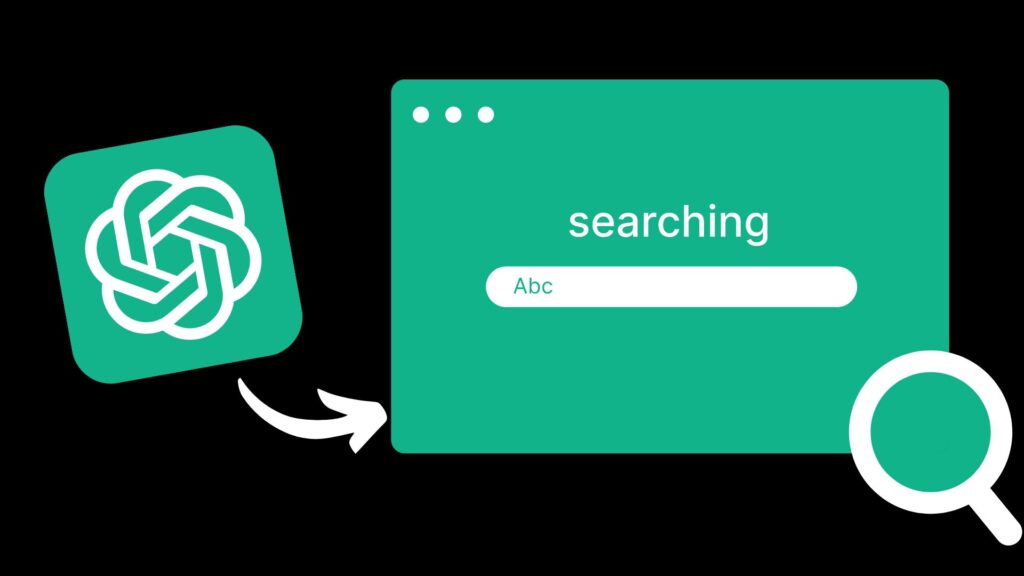
In the realm of internet search, a new contender may soon emerge to challenge Google’s dominance: OpenAI’s ChatGPT-powered search engine. This innovative project promises to blend the efficiency of traditional web searches with the nuanced understanding of artificial intelligence. Let’s delve deeper into what this means and how it could reshape our online searching experience.
Table of Contents
ToggleWhat is the ChatGPT Search Engine?
The ChatGPT search engine represents a fusion of web search functionality akin to Google with the generative capabilities of ChatGPT, an advanced AI model. Imagine asking a question or entering a query, and instead of conventional search results, you receive a synthesized response that includes AI-generated content along with relevant web pages. This approach aims to provide users not only with summaries but also with direct sources for further exploration.
How Does It Work?
At its core, the ChatGPT search engine utilizes OpenAI’s language model to process and understand user queries. When a question is posed, the system generates a response that not only summarizes pertinent information from the web but also includes AI-crafted insights. This synthesis of web data and AI-generated content aims to deliver more comprehensive and insightful search results compared to traditional search engines.
Potential Features and Benefits
Comprehensive Summaries: Users can expect concise yet informative summaries of search topics, saving time and effort in sifting through multiple web pages.
AI-Generated Insights: The integration of AI means that search results could offer deeper insights and interpretations, going beyond simple keyword matching.
Enhanced User Experience: By combining web search with AI capabilities, the ChatGPT search engine may provide a more intuitive and personalized user experience.
Multi-Device Adaptability: The user interface could adapt seamlessly across devices, optimizing display for desktops, tablets, and smartphones.
Impact on the Search Engine Landscape
Google currently dominates the search engine market with nearly 90% share, followed by Microsoft’s Bing. OpenAI’s foray into this space could introduce healthy competition and innovation, potentially reshaping how we search for information online.
Potential Challenges and Considerations
Accuracy and Reliability: The effectiveness of AI-generated content hinges on its accuracy and reliability. Ensuring that the ChatGPT search engine delivers trustworthy information will be crucial.
Monetization Strategies: OpenAI could explore revenue streams such as advertising within search results, akin to Google’s model.
Launch and Future Outlook
Rumors suggest that the ChatGPT search engine could launch imminently, with reports pointing towards a potential release date around May 9. If successful, this project could mark a significant milestone in the evolution of AI-powered applications and their integration into everyday digital interactions.
In summary, OpenAI’s venture into developing a ChatGPT-powered search engine signifies a convergence of cutting-edge AI technology with the practicality of web search. As we await its official launch, the possibilities and implications of this innovation spark curiosity and anticipation within the tech community and beyond.
FAQs
The ChatGPT search engine is an upcoming web search tool developed by OpenAI that combines traditional search engine capabilities with artificial intelligence (AI) to provide more insightful and comprehensive search results.
Unlike Google, which primarily relies on keyword matching, the ChatGPT search engine will generate AI-powered summaries and insights alongside traditional search results, offering a deeper understanding of queried topics.
Rumors suggest a potential launch around May 9, 2024, although the exact release date has not been confirmed by OpenAI.
The AI component of ChatGPT will analyze and interpret web content to generate insightful summaries, making it easier for users to grasp key information quickly.
Yes, the ChatGPT search engine is designed to be responsive across various devices, including smartphones, optimizing the display for a user-friendly experience.
OpenAI may incorporate advertisements within search results to generate revenue, similar to Google’s monetization strategy.
OpenAI aims to ensure high accuracy and reliability of AI-generated content by continuously refining the ChatGPT model and validating information sources.
Yes, ChatGPT is trained on vast amounts of data and can comprehend nuanced and complex queries, offering more sophisticated responses compared to conventional search engines.
OpenAI is committed to user privacy and may implement measures to protect personal data, although specific details on data handling are not yet disclosed.
Once launched, you can access the ChatGPT search engine through its website or designated platform, enabling you to explore its unique features and capabilities firsthand.




